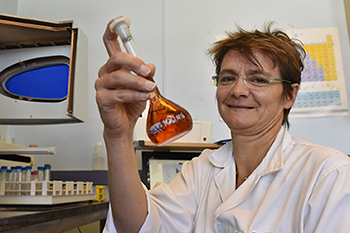Latest News Archive
Please select Category, Year, and then Month to display items
18 August 2021
|
Story Division of Student Affairs
![]()
The SRC Elections for the elective portfolios will be held from 12 to 15 October 2021 for the Bloemfontein, Qwaqwa and South Campuses.
Following the official announcement of the election schedule on 16 August 2021, the processes below are to unfold:
a. Candidate nominations for CSRC elective portfolios will open on 23 August, until 10 September 2021;
b. Ex-officio portfolio elections will take place on 11 October 2021;
c. Manifesto launches will take place via webinars from 15 September to 11 October 2021;
d. Declaration of final election results will be on 18 October 2021.
KDBS Consulting (Pty) Ltd has been appointed as the independent Chief Elections Administrator that is to oversee and manage the 2021 online SRC elections.
A website will be launched to provide updated information regarding all processes that are to unfold. A detailed schedule will also be made available via the official elections website that will be hosted by the service provider.
For any queries related to the elections, communication is to be sent via email to the Chief Election Administrator at
ufssrcelections@kdbs.co.za Communication to the election helpdesk may also be sent via direct call or on WhatsApp at
+27 0 61 452 4499.
Election specific notifications will be communicated via email and SMS.
Official elections will take place from 12-15 October 2021.

UFS Ground Studies Laboratory receives accreditation to international standard
2016-03-18

Lore-Mari Deysel, Deputy-Director of the institute for Groundwater Studies.
Photo: Charl Devenish |
The Institute for Groundwater Studies (IGS) Laboratory at the University of the Free State is on equal footing with international testing labs. With its accreditation in March 2016 by SANAS (South African National Accreditation System), the IGS Laboratory now officially meets global standards.
Quality of water
The IGS Laboratory mainly analyses the quality of water samples. When it was originally established in 1989, the lab’s central function was to conduct testing for researchers at the institute itself. “After the public and water boards realised their need to analyse water samples, the IGS Laboratory expanded to deliver a service to these clients,” says Lore-Mari Deysel, Deputy-Director of the institute.
Since suppliers and regulatory authorities will not accept test or calibration results from a lab that is not accredited, the IGS initiated the accreditation process.
Accreditation to international standard
In order to be deemed technically competent and able to receive accreditation, labs must meet the ISO/IEC 17025 standard. ISO/IEC 17025 was first issued in 1999 by the ISO (International Organization for Standardization) and the IEC (International Electrotechnical Commission).According to Deysel, this is the single most important standard for calibration and testing laboratories around the world.
“Laboratories that are accredited to this international standard have demonstrated that they are technically competent and able to produce precise and accurate test and/or calibration data. Furthermore, it demonstrates that the university has the capacity to supply valuable and reliable services alongside the academy,” Deysel says.